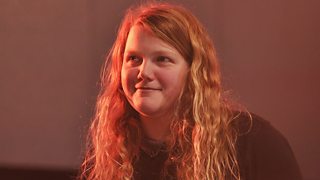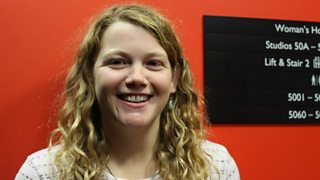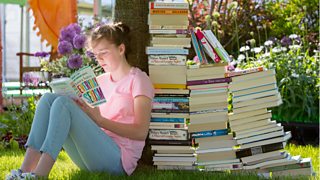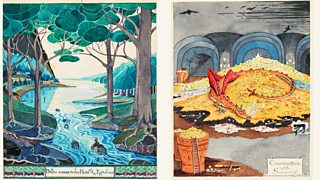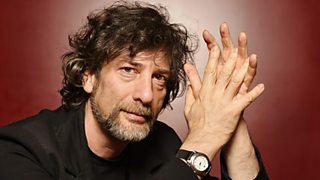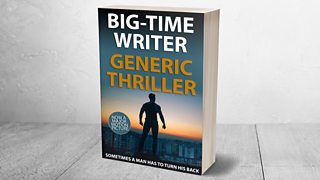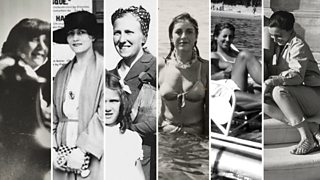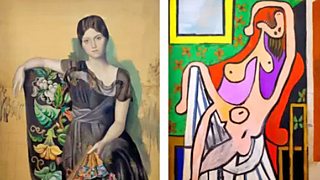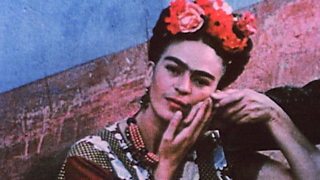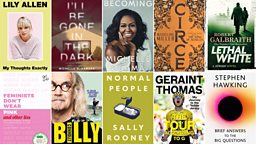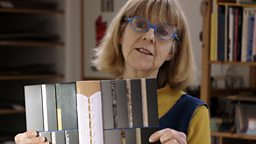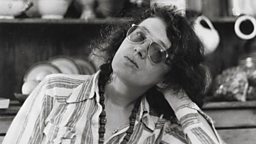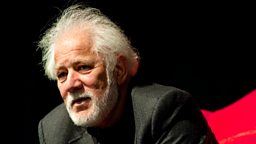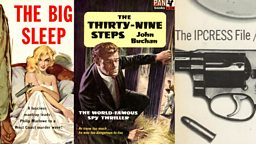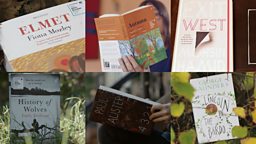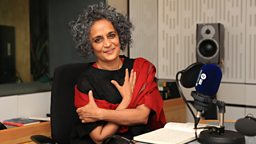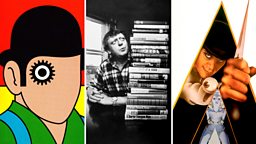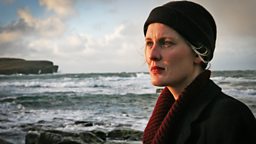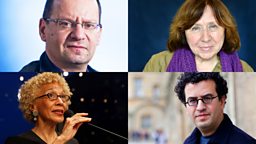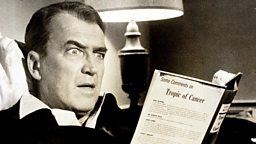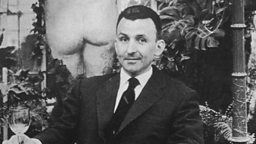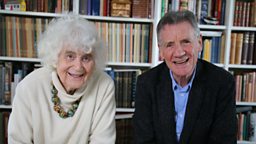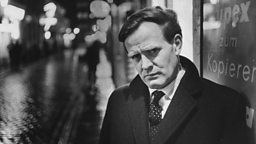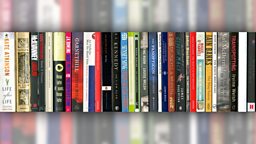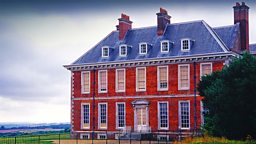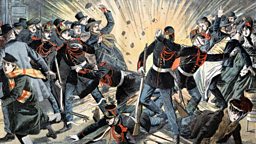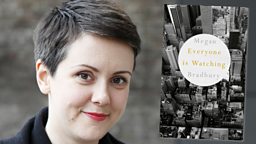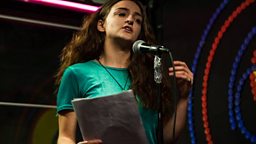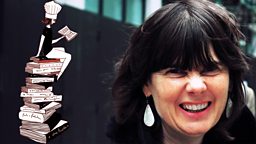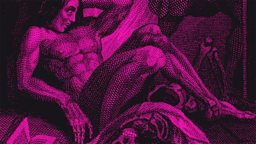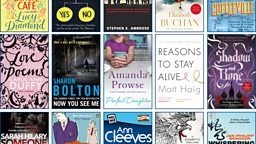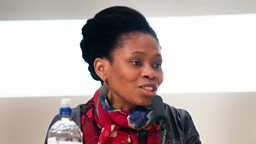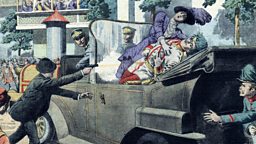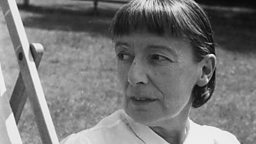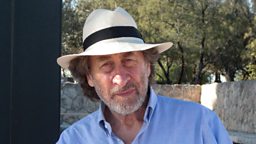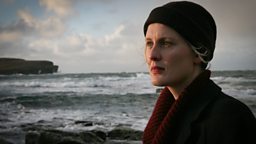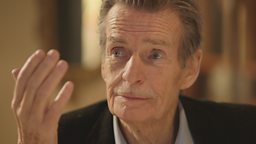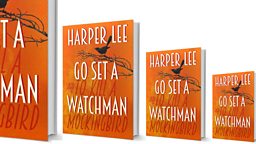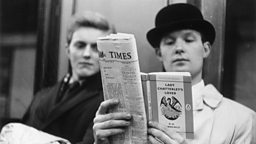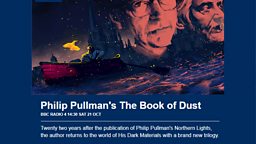Kicking up a storm: Kate Tempest on her debut novel
7 April 2016
Spoken word performer and poet Kate Tempest has written an ambitious, sprawling London novel called The Bricks that Built the Houses. The book zooms in on the interconnected lives of a group of lost millennials in South East London. Here, Tempest discusses making the jump from poetry to prose.
The people in Bricks are trying to find a path through a tangled emotional undergrowth, nihilistic drug culture and fractured urban landscape where, to quote the author, "financial buildings rise like fangs in the city’s screaming mouth". It’s in the grimy streets below those skyscrapers that Harry, her brother Pete, and Becky - the dancer they both fall for - try to turn their hopes and dreams into reality.
Tempest was Mercury-shortlisted for her 2014 album Everybody Down, and was awarded the Ted Hughes award for innovation in poetry for her 2013 narrative work Brand New Ancients.
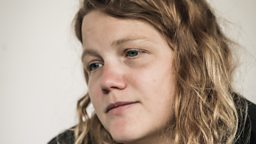
This is a story and a set of characters you’ve addressed before. Why did you want to return to them?
You end up falling in love with the characters you create, especially because I’ve been touring with them for so long. I’m living with them every night on stage when I’m singing about them, then in the day drafting the novel on the tour bus.
They seem to inhabit every space - you walk around and you live with them and they become fiercer and brighter and for some reason I didn’t feel done with them - they kept wanting to come out.
Did you find writing in prose liberating compared to the formal restrictions of poetry?
I didn’t feel a bigger freedom in prose because I don’t find poetry that constraining. Yes it has to be precise, but I find that exciting and the precision needed for a poem actually gives me more freedom to go a bit further into meaning or moment. What I find about prose is it’s a different language; it’s a different experience.
I feel like I鈥檓 one step closer to finding my prose voice
All my life I’ve been writing prose but not publicly. I write often: when I’m moving through the city I’m often just so blown away by encounters and situations. I’ll carry a notebook. I’ll be writing verbatim things I overhear.
I used to get frustrated asking, 'Why am I writing journalistic-style entries when I should be writing a play or a novel?' I felt so urgently I needed to make my mark and get moving, I was distraught about all this writing I was generating that wasn’t a novel.
When the idea came that merited the form and I finally sat down to write, I realised I had been developing my voice for years, and every single scrap I’d scoured with undisciplined scribbles was really helpful in making me feel at ease with sentence structure, prose and paragraphs.
Obviously, this is my first novel; I’m a long way from being comfortable with the form. But I got to the end of this epic process and realised I’m now ready to write my first novel.
I think that’s always the way it feels. At the end of a piece of work suddenly you realise what it takes to create a piece of work like that. I feel like I’m one step closer to finding my prose voice, when I’ve been working on my poetic voice for the last ten, fifteen years.
How did it feel to write about them in a novel as well as in poetry and music?
The plan was always that this narrative would exist both as a record and as a novel. When the idea came it came in two camps, and I’ve been trying to get to the end of this story for the last few years.
The characters from Brand New Ancients and the characters from my first play Wasted and album Everybody Down, they walk in and out of this novel.
So this is the last chapter of a body of work with characters I’ve been carrying round for a good few years; a place where they would have this extra space where they could breathe and live, and there’s even a moment in the novel where they begin to live in a different way to the record or in Brand New Ancients.
There’s a world-weary, jaded air to these characters. Is that a generational thing or specific to the experiences of these particular individuals?
I feel that something has happened to this generation, my generation. In the 1950s and 60s there seemed to be hope for change, for imagining something that could change the social climate.
Our legacy is this culture of greed and it makes us believe we can鈥檛 believe in anything
There was a more optimistic use of the imagination to come up with alternatives to the way that things were. There was belief in a movement for change.
I think what we’ve learned - and it’s sad to say - is that we can’t trust anything. Nothing will change. The things that make the world go round are beyond anyone’s control because it’s all about corporate control and profit before people.
This is what we’ve grown up with. Our legacy is this culture of greed and it makes us believe we can’t believe in anything. We don’t trust those who govern for us.
I say we - I don’t mean to speak for anyone other than myself or my characters - there’s just this feeling of disillusionment.
The experiences you write about feel like they’re very familiar to you. How autobiographical is this material?
With all fiction it begins in truth. The best fiction begins in some moment that feels so real and right with you that it sends you to try and make sense of it through writing. The setting, for example - South London - is so huge for me internally; it’s the place I grew up.
It’s such a full place and such an assault on the senses, living amongst so many people. I’m in love with people and living amongst so much life. There’s something about the proximity to that many bodies that I want to write about, that sends me the page or the recording studio.
These are highlights from Kate Tempest’s interview with 麻豆官网首页入口 Radio 4’s . Kate Tempest is currently . The Bricks that Built the Houses is published by Bloomsbury Circus.
Book at Bedtime
-
![]()
Poet and rapper Kate Tempest reads her debut novel
Open Book
-
![]()
Listen to Kate Tempest's Open Book interview, discussing The Bricks That Built the Houses with Mariella Frostrup
Glastonbury 2015
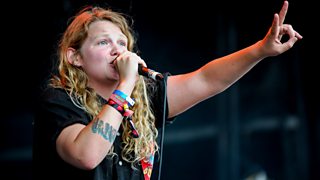
Highlights of Kate Tempest's set on the Park Stage at the Glastonbury Festival on 27 June 2015.
Artsnight interview
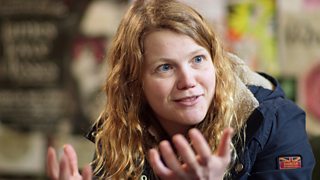
Armando Iannucci talks to Kate about her life and work in this interview originally broadcast as part of 麻豆官网首页入口 Two's Artsnight on 20 March 2015.

More from Books
-
![]()
Seven must-read novels by female authors.
-
![]()
Tolkien's own illustrations of his fantasy universe.
-
![]()
The author picks his three favourite works of science fiction.
-
![]()
Judge these books, and their genres, by their covers.
More from 麻豆官网首页入口 Arts
-
![]()
Picasso鈥檚 ex-factor
Who are the six women who shaped his life and work?
-
![]()
Quiz: Picasso or pixel?
Can you separate the AI fakes from genuine paintings by Pablo Picasso?
-
![]()
Frida: Fiery, fierce and passionate
The extraordinary life of Mexican artist Frida Kahlo, in her own words
-
![]()
Proms 2023: The best bits
From Yuja Wang to Northern Soul, handpicked stand-out moments from this year's Proms
